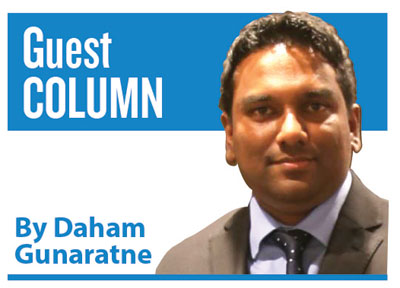Property buyers need better education on risks and rights
View(s):Land is a priced asset by many since the dawn of humanity. Land ownership has created kings and nobility, and been the cause of numerous battles in the past. This asset maintains its prestige of ownership, as no new stock is made and what exists is already owned and is increasing in value every day.
But with land ownership and assets comes the problem of fraud. Land frauds have been going on in Sri Lanka even before land records were introduced, but their introduction has done little to quell the scams. Land frauds can range from simply moving a fence a few feet into a neighbour’s territory or even replacing titles with fake ones at the registry and laying claim to that land. At times, owners – especially those who are living abroad for long periods of time, upon their return home – find to their utter dismay properties held by them for decades fraudulently sold to third parties!
One may ask, how is this possible? It is possible through the involvement of unscrupulous elements with access to land records, either at the Land Registry or at local government offices (i.e. Pradeshiya Sabha). Unless there is a secure registration and document preservation system in place, where only authorised persons have access to official records; land fraud is bound to take place.
How can this be prevented? Regular checks on documents at the Land Registry, is one possible course of action. Another is to add a Caveat. A Caveat is a notice registered at the relevant Land Registry, which holds a record of the land. If the Caveat is in place, the Land Registrar is duty bound to inform those who register the Caveat when any document or alteration to the registration of the said land is received.
Apartment buyers also need to verify all necessary documents before they make a purchase. Title report, Deed, ownership certificate, street line certificate, Certificate of Conformity (COC), approved plan by UDA and clearance letter by the Condominium Management Authority are some of the documents that must be verified. Without all the necessary documents a deed cannot be issued, and there have been multiple cases where developers have deviated from approved building plans, and thus the COC has not been granted by the local authority, which in turn prevents owners from receiving their deeds. Buyers also need to be vary about the ownership of the land which it is being built upon. If it’s mortgaged to a bank, then the bank must agree to release each parcel (i.e. apartment unit) when payment is made for that parcel, rather than wait until the full loan is cleared.
Innovations such as Blockchain that keep ownership records in a de-centralised digital ledger and records any validated changes to that record, might serve as a solution to prevent land fraud and even provide valuations online instantly. The Blockchain platform, built as the backbone for Cryptocurrencies like Bitcoins, is now being used for other purposes such as managing land titles, medical records and financial transactions. It stores all historical data in a ‘chain of blocks’ so all historical ownership records can be viewed for a given plot of land. Since the platform doesn’t allow any historical data to be modified but adds a new ‘block’ to the chain when a change is made, any fraudulent modifications can be blocked. The way that it would safeguard against tampering is by de-centralising the data, which means that data isn’t stored in one place, file or computer, but across multiple computers across multiple locations. Plus, complex algorithms and verifications are put in place so that any change to a record is fully scrutinised before it’s accepted, ensuring the trust in the data.
Recently Dubai announced that it will completely digitise all its property transactions and put its Land Registry on a platform so all deeds, tenancy agreements and registries will be held in the system with buyers and sellers being able to digitally sign the documents from anywhere in the world. In addition to that, the system will link up with banks, so mortgages can be approved instantly and the floor plans for the properties will be available to property facilities providers for conducting interior work or maintenance.
A platform such as this would also reduce the hassle for people having to visit multiple government institutions to submit their documents and to pay the stamp duties and taxes. However, this is many years away for us as the country doesn’t even have electronic records of Deeds or Title records. Until such time, buyers and sellers are advised to seek advice from professionals on verifying and safeguarding their documents. LankaPropertyWeb’s Buyer and Seller Assistance Programme was also initiated in order to provide advice and legal assistance to buyers and sellers on preparing documents and the safeguards that they can take to prevent fraud, plus help with identifying the true ownership of property and getting the property valued by recognised valuers. Once the Blockchain technology has been successfully implemented in other countries I hope that Sri Lanka would soon adapt this to not only prevent fraud but also to make transactions fast and hassle free.
(The writer is Managing Director of Lanka Property Web (Pvt) Ltd and can be reached at daham@lpw.lk)


